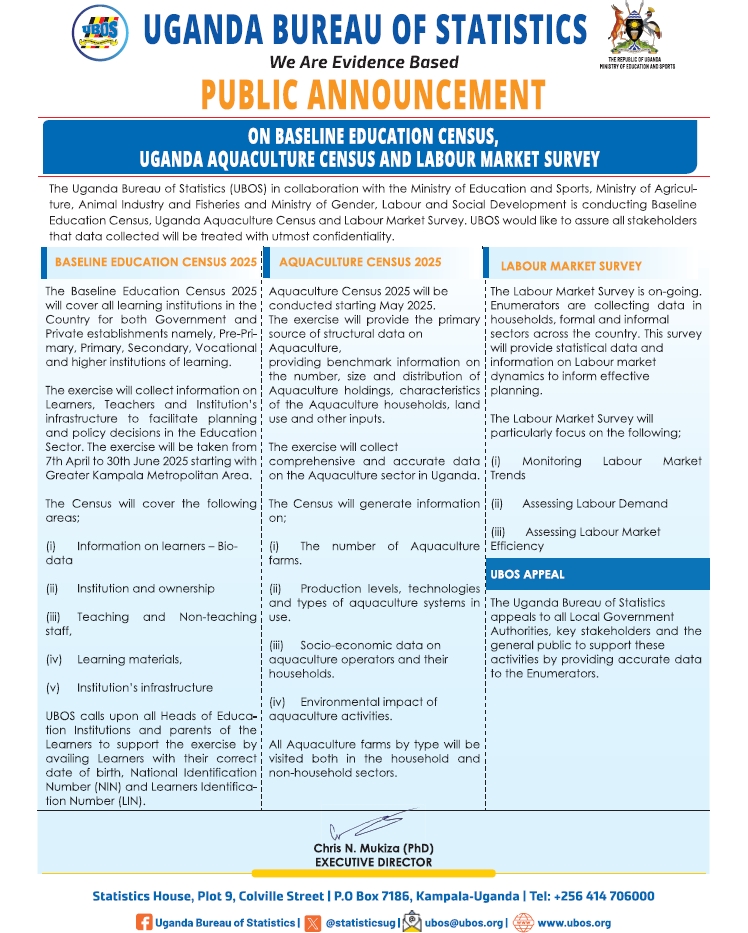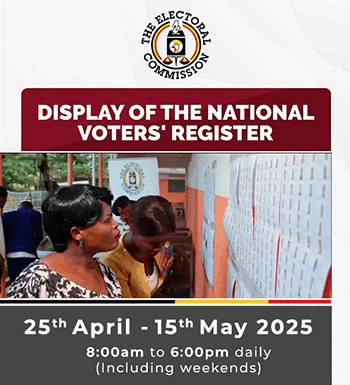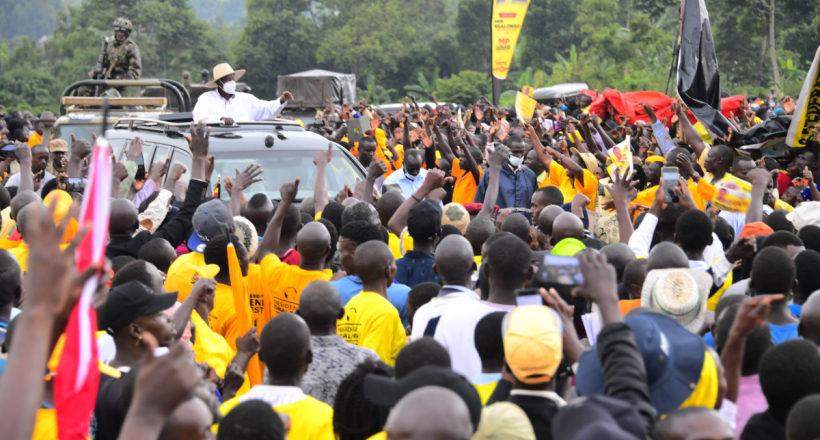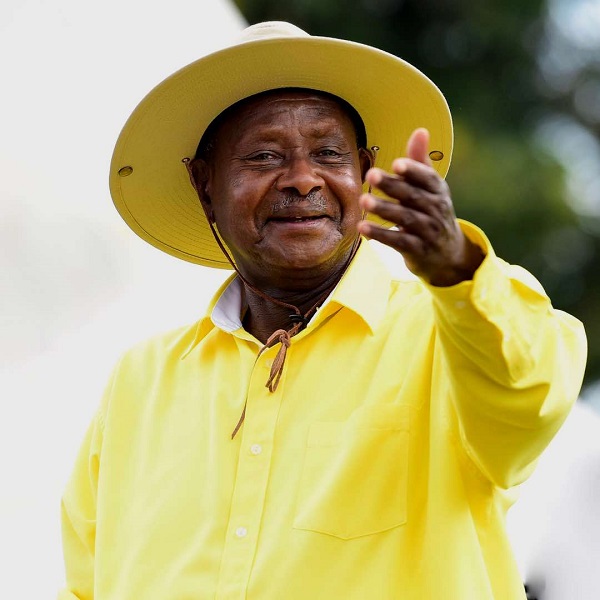President Yoweri Museveni has called upon the local communities and the police to preserve Uganda’s peace which has been in existence for decades.
Speaking at a public rally at St. Cornelius Playground in Kalagala Village, Buikwe District, the President mentioned that the country has been transformed, with peace standing as the foundation.
He reminded the attendees that Uganda’s current stability is not by chance, but a result of deliberate efforts.
“We built for you a strong army in the 1980s that has protected this country,” he said.

The President emphasized the use of trained police dogs, CCTV cameras, and digital number plates with embedded chips as new tools in crime fighting but warned that community involvement remains the most powerful weapon.
“Don’t tamper with crime scenes. Let the dogs track. Let the police lead. And from now on, there will be no more police bonds for these thugs,” he warned.
Highlighting the need for inclusive prosperity, President Museveni emphasized that national development projects like roads, electricity and schools must go hand-in-hand with personal wealth creation at the household level.
“This road from Mukono– Kisoga– Nkokonjeru, the electricity, and the schools, are for all of us. We all benefit from these projects, but that is development. Wealth is different, it is personal, and it must be built within your homes, your families, or your enterprises,” he said.
He warned that Uganda can have paved roads and modern infrastructure but still have poverty-stricken communities living along them.
“In 1965, when I was in Senior Five at Ntare School, we traveled by car from Mbarara to Soroti and the road was already tarmacked. Since we came into government, we have renovated it further. But even now, you’ll still find poor people living along that road,” he said.
Reiterating a wealth creation campaign he began in the 1960s, the President praised the cattle corridor communities who heeded his early call for economic transformation.
“I’m very glad the dairy farmers of 1964–65 listened. We told them to stop moving from place to place trying to run from foot and mouth disease. They listened and now, they’re earning big,” he said.
He then advocated for intensive agriculture, especially for families with limited land.
“If you have a small piece of land, say two acres and you grow cotton or tobacco, you get little per year. But you must produce a good or service for sale and you must do it with ekibalo (calculation),” he said.
“If you have four acres, do seven things: One acre for coffee, it can bring you Shs15 million a year. The second acre for fruits, the third for pasture you can support eight Fresian cows on one acre. The fourth acre for food crops for the family. In the backyard, do poultry for eggs, piggery if you’re not a Muslim, and fish farming if you’re near swamps. Fish farming brings a lot of money. One acre, with four ponds can give you up to Shs 80 million a year.”
On the Parish Development Model (PDM) program, the President reminded beneficiaries that the funds are not giveaways but community-owned investments.
“This PDM is your bank. It is not a handout; it’s a revolving fund meant to uplift you from poverty. Those who have received the money must ensure it is put to good use and repaid after two years so that others can also benefit,” he noted.
He issued a stern warning against misuse or neglect of the program.
“This money belongs to you and your community. If you misuse it or fail to repay, you deny others a chance to improve their livelihoods.”
President Museveni also took a firm and historical stance on land injustice, especially the plight of bibanja tenants.
“When we introduced busuulu as a token, landlords complained that it was meaningless, but I told them this land belongs to the people.”
He condemned forceful evictions, calling them illegal and colonial remnants.
“This is a colonial legacy. Chasing people off land is banned. It is illegal. If someone tells you to leave land you have been using, brings papers, and claims to be your landlord, that’s abuse of your ignorance,” he said.
“We shall make sure that bibanja holders pay ground rent through the sub-county office. Landlords who reject these payments will no longer have room to manipulate or threaten tenants.”

Responding to the requests made earlier, the President announced targeted financial support to local SACCOs.
“I have put Shs30 million in the Youth SACCO and another Shs30 million in the Women SACCO,” he said.
On her part, Hon. Diana Mutasingwa, the Minister of State in the Office of the Vice President and Woman Member of Parliament for Buikwe District, applauded the President for his continued commitment to transforming the lives of the people in Greater Mukono.
“I thank you, President Museveni, for touring Greater Mukono and for the tangible efforts you’ve made to uplift our people,” Hon. Mutasingwa said, highlighting key interventions that have directly benefited the district.
She also expressed deep gratitude to President Museveni for signing the Sugarcane Bill into law, explaining that it is a game changer for Buikwe and other sugarcane growing districts in the country.

“Our farmers are grateful. This law has brought hope and dignity to the hardworking growers in our region,” she noted.
Hon. Mutasingwa also acknowledged several other critical government investments, including the allocation of Shs10bn for the construction of the Buikwe District Headquarters, Shs1.3 billion for an irrigation scheme, and the budgeting of the Lugazi–Kiyindi–Buikwe road, a vital transport link for the district.
However, the Minister also outlined key challenges still facing her constituents. She called for the President’s urgent attention to the plight of the fishing community, reminding him of his commitment to protect Lake Victoria for indigenous Ugandans.
The event was also attended by Hon. Denis Hamson Obua, the Government Chief Whip, the NRM Vice Chairperson for Buganda region, Hon. Godfrey Kiwanda Suubi, the Minister of State for Micro-Finance, Hon. Haruna Kasolo, Ms. Jane Barekye, the State House comptroller, among others.


